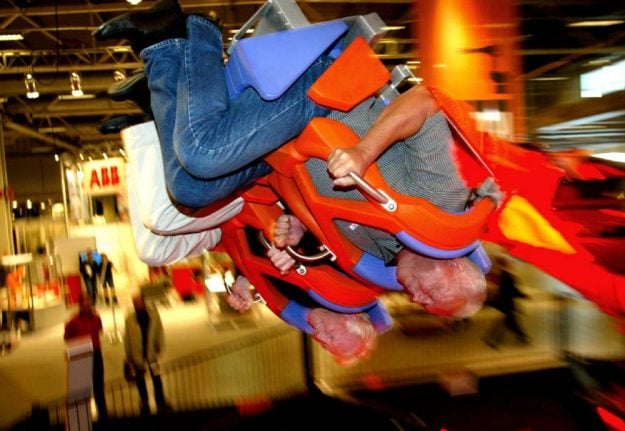That means trips to Stockholm's Gröna Lund, Gothenburg's Liseberg, and other amusement parks are off the cards.
Gatherings of more than 50 are currently banned in Sweden, and on Monday the government said no exception would be made for theme parks — a decision that came as a blow those working in the industry.
“The government has made a weighted assessment of this and believes that the easing of restrictions that actually occurred before the summer, will suffice. And we are responsible for ensuring that the spread of infection does not take off in Sweden,” Interior Minister Mikael Damberg told the TT newswire, referring to a change in the guidance in mid-June which allowed domestic travel for symptom-free people.
“There are many activities covered by this restriction. It might be water parks, concerts, demonstrations. Many groups have wanted exceptions,” he added.
For Parks and Resorts, which owns Gröna Lund, Kolmården, Furuvik and Skara Sommarland, the message has enormous consequences.
“As societies open up more and more, we have for a long time been preparing to open with restrictions in line with the recommendations, just as has been done in neighbouring countries. I really believed that we should be open,” the group's CEO Christer Fogelmarck said.
“My thoughts go to the thousands of young people who will now not get their summer jobs. The Parks and Resorts Group now expects to lose one billion kronor in sales this year,” says Christer Fogelmarck.
Julia Vasilis, information manager at the Liseberg amusement park in Gothenburg, described the decision as “surprising, frustrating and sad.”
“During the spring and early summer, in anticipation of an announcement [allowing theme parks to reopen], risk analyses have been conducted and a number of measures have been taken to reduce the risk of infection. Everything from fewer visitors, to digital queues and different hygiene measures,” she said.
“We have taken enormous steps and believe that we can open safely. All other countries in Europe have an opening plan for theme parks, we thought we would get a positive message too. This was not what we expected.”
Not all amusement parks have been affected in the same way, as it depends on the capacity and the way that the site is run. Zoos are not covered by the Ordinance Act which sets to the 50-person limit.
This means that for example Kolmården Wildlife Park is open to visitors with a limited number of tickets available per day, as is Astrid Lindgren's World in Småland, and the Furuvik zoo and amusement park in Gävleborg, but all these sites have introduced restrictions, social distancing measures, and updated their hygiene routines.
Interior Minister Mikael Damberg said he understood the difficulties facing the industry, but that the theme parks were not alone in this, and he pointed to government aid for crisis-hit businesses.
“We have implemented a large financial support package to reach many businesses that are affected. Clearly, we understand that these are sectors that have suffered severely throughout the pandemic due to the 50-person limit,” said Damberg.
-
Sweden reports first signs of economic recovery after coronavirus crash
- The Local's readers: 'Our jobs are at risk because of the coronavirus'


 Please whitelist us to continue reading.
Please whitelist us to continue reading.
Member comments